Sensitive skin? No problem. If earrings leave you with itching, redness, or swelling, you’re likely dealing with a nickel allergy - a common issue for 15% of women and 2% of men. Hypoallergenic hoop earrings are your solution, crafted with skin-friendly materials like titanium, niobium, or nickel-free alloys. They minimise irritation while letting you enjoy stylish accessories.
Key Takeaways:
- Best Materials: Titanium, niobium, surgical stainless steel (nickel-free).
- Avoid: Nickel, brass, low-quality plated jewellery.
- Design Tips: Opt for lightweight hoops ( around 7 grams a pair) with secure closures
- Care Tips: Clean weekly, store in jewellery pouches or airtight bags, avoid wearing during swimming or workouts.
- Certifications Matter: Look for EU Nickel Directive compliance or UKAS-accredited testing (e.g., AnchorCert Pro).
Choose hoops that are comfortable, stylish, safe for your skin. The right pair ensures you can wear earrings worry-free, every day.
Know Your Hypoallergenic Materials
When something is labelled "hypoallergenic", it means it’s less likely to trigger allergic reactions. However, there’s no official standard regulating this term. No federal guidelines exist to back "hypoallergenic" claims, so it’s crucial to dig deeper into the actual metal content rather than relying on marketing buzzwords.
Metals like nickel, brass, and low-melting alloys (such as zinc, tin, lead) are common culprits behind jewellery-related allergies. Even white and rose gold can include allergenic alloys. For jewellery to be considered hypoallergenic, it should contain little to no nickel. That’s why understanding the materials used is key to making smart, allergy-safe choices. Let’s take a closer look at why nickel-free alloys are particularly helpful.
Why Nickel-Free Alloys Matter
Nickel is one of the most common causes of allergic contact dermatitis, as explained by the Mayo Clinic:
"Nickel allergy is a common cause of allergic contact dermatitis - an itchy rash that appears where your skin touches a usually harmless substance."
Nickel is often used to strengthen softer metals, making it a staple in many jewellery alloys. Unfortunately, repeated exposure can lead to the development of a nickel allergy, even if you’ve never had issues before. Over time, your skin may start reacting to items you once wore without a problem.
One of the easiest ways to avoid nickel is by opting for surgical stainless steel. While some types of surgical-grade stainless steel may include trace amounts of nickel, higher-quality options are specifically designed to minimise allergenic content. Always look for jewellery explicitly labelled "nickel-free" rather than assuming all surgical steel is safe - it’s not a one-size-fits-all material.
Be mindful of plated jewellery as well. Sometimes, pieces labelled "nickel-free" only refer to the plating on the surface. Over time, this plating can wear off, exposing the nickel or other allergenic metals underneath. Solid nickel-free alloys are a better choice for long-term protection.
Best Hypoallergenic Metals: Titanium and Niobium
If you’re serious about avoiding allergic reactions, titanium and niobium are top-tier choices. These metals are highly inert, meaning they don’t interact with your skin or body chemistry, making them ideal for sensitive skin.
Titanium isn’t just hypoallergenic; it’s also incredibly practical. It’s three times stronger than steel but 40% lighter, making it a fantastic option for larger hoops that won’t feel heavy on your ears. Its strength ensures that titanium jewellery holds its shape beautifully, while its lightweight nature keeps it comfortable for extended wear.
Niobium is another excellent option, particularly recommended by professional piercers and dermatologists for those with severe sensitivities. Its smoother surface finish can reduce irritation when earrings pass through the skin, and its malleability allows for intricate designs without compromising its hypoallergenic properties.
Both titanium and niobium are resistant to corrosion, meaning they won’t tarnish or degrade over time. This durability makes them a smart investment for anyone who wants long-lasting, allergy-safe jewellery. While these materials may come with a higher price tag, their skin-friendly properties and longevity make them worth every penny.
Read Product Labels and Certifications
When it comes to jewellery, understanding product labels isn't just helpful - it can make all the difference, especially if you have sensitive skin. Terms like "nickel-free" and "hypoallergenic" can be confusing, so it’s important to know what they really mean. Add to that the value of certifications, and you’ll be better equipped to choose pieces that suit your skin.
Understanding "Nickel-Free" vs "Hypoallergenic" Labels
Let’s start with "hypoallergenic." This term simply means "less likely to cause an allergy." However, it’s often used as a marketing buzzword and doesn’t guarantee that a product is completely safe for everyone. On the other hand, "nickel-free" means the alloy doesn’t contain nickel. But even then, "nickel-free" doesn’t eliminate all reactive metals that could irritate sensitive skin.
Here’s something to keep in mind: even surgical-grade stainless steel can sometimes contain trace amounts of nickel. If you’re particularly sensitive, avoid surgical stainless steel unless it explicitly complies with regulations like the EU Nickel Directive.
Take a closer look at labels. Instead of relying on vague terms, check for detailed material compositions. If the information isn’t clear, reach out to the seller for clarification.
Look for Trusted Jewellery Certifications
Labels are a start, but certifications are where you’ll find real assurance. Certifications back up safety claims with rigorous testing, offering peace of mind that marketing claims alone can’t provide. In the UK, one trusted programme is AnchorCert Pro, a UKAS-accredited testing service. It evaluates jewellery for 16 metallic elements that can trigger skin reactions, including nickel, cadmium, lead, and cobalt.
"AnchorCert Pro offers an extra layer of compliance that supports claims that items are safer for the consumer. Our logo is a true symbol of quality and allows buyers to recognise that items sold using this logo are in fact hypoallergenic through a rigorous and robust testing programme." – Birmingham Assay Office
This certification is particularly relevant given that up to 17% of UK women experience allergic reactions to nickel. For instance, Ti2 Titanium uses AnchorCert Pro Hypoallergenic Testing to ensure their jewellery meets international standards like REACH.
"When you choose AnchorCert certified jewellery from Ti2 Titanium, you're not just getting beautiful, UK-crafted jewellery - you're making a statement of quality, trust, and care." – Ti2 Titanium
When shopping for hypoallergenic hoop earrings or other jewellery, look for brands that conduct batch-to-batch testing to maintain consistent compliance. Descriptions should mention adherence to the EU Nickel Directive and REACH regulations, and it’s worth checking if the jewellery has been tested by a UKAS-accredited lab.
Don’t settle for unclear claims. If a manufacturer or seller describes their jewellery as hypoallergenic, ask for proof. Transparent brands will gladly provide documentation of their testing processes, along with clear labelling that includes manufacturer details and any relevant safety warnings.
Pick the Right Design for Comfort and Style
Finding the perfect balance between style and comfort is essential for those with sensitive ears. The wrong design can make even your favourite hoops a source of discomfort, while the right choice allows you to wear them with ease all day.
Choose Lightweight Options for Daily Wear
Once you've chosen the right materials, it's time to focus on designs that prioritise comfort. The weight of hoop earrings plays a significant role here. Heavier earrings can strain your earlobes, especially if worn for long periods. To avoid soreness, opt for hoops that weigh less than 7g.
Materials like titanium and aluminium are great choices because they are durable yet lightweight. These allow you to enjoy larger statement hoops without feeling weighed down. Prefer gold or silver? Go for hollow designs - they provide that luxurious look without adding unnecessary weight.
For everyday use, hoops in the 25–35mm range strike the perfect balance between elegance and comfort. Smaller hoops (20–30mm) are ideal for office wear, while medium-sized hoops (30–40mm) can effortlessly transition from day to evening looks.
| Hoop Size (Diameter) | Description | Ideal for |
|---|---|---|
| 10–20mm (Small) | Petite and subtle hoops | Everyday wear, minimalistic style |
| 20–40mm (Medium) | Versatile, classic hoops | Casual and semi-formal looks |
| 40–70mm (Large) | Statement hoops | Bold, glamorous occasions |
| 70mm+ (Extra Large) | Oversized and dramatic | Special events, parties |
Find Secure Closures for Sensitive Lobes
In addition to lightweight designs, secure closures are a must for sensitive ears. The type of closure can make or break your earring experience. Poorly designed closures can irritate your skin or feel overly tight, turning an otherwise beautiful accessory into a nuisance.
"Comfort is key, especially for daily wear earrings. Ill-fitting closures can irritate the skin or feel too tight." - The Vintage Pearl
For hoop earrings, latch-back closures are a fantastic option. Their hinged mechanism clicks securely in place, evenly distributing weight and reducing pressure on your earlobes. This design also minimises tugging when putting on or removing earrings.
Lever-back closures combine practicality with elegance. Their spring-loaded mechanism ensures a secure fit while applying gentle, even pressure, making them comfortable for long-term wear. Plus, they’re easy to operate with one hand, which is a big plus for everyday use.
Hinged snap closures are another excellent choice. By integrating the clasp into the hoop itself, they eliminate the need for separate backings that can cause discomfort or be easily misplaced.
Ultimately, the best closure depends on your lifestyle and preferences. Screw-back closures, for instance, might feel too fiddly for daily use but offer extra security for valuable pieces. The goal is to find a closure that’s easy to operate and doesn’t dig into your skin, ensuring both comfort and practicality.
Care for Your Hypoallergenic Earrings
Taking care of your hypoallergenic hoops is essential to keep them safe for sensitive skin and looking great. Even the best materials can cause irritation if not properly maintained. Simple habits like regular cleaning and thoughtful storage can make a big difference.
Cleaning and Storage Tips
Clean your earrings weekly to remove oils, skin cells, and grime. This prevents bacteria buildup, which is especially important for sensitive ears.
For daily cleaning, start by washing your hands thoroughly. Use mild soap and warm water to soak your hoops for a few minutes, then gently scrub them with a soft-bristled brush to clean any small crevices. Rinse well and dry completely with a soft cloth to avoid water spots.
"Keeping your jewelry and piercings clean is essential for both your style and health. If you regularly clean your earrings with a gentle, non-abrasive cleaner to remove dirt and oils, that will preserve their shine." - Natalie Holst, founder of Holst+Lee
Titanium earrings are particularly suited to a sea salt water solution. Mix a quarter teaspoon of sea salt with 240ml of warm water, soak your earrings for 5–10 minutes, rinse, and dry. This method is gentle and great for extremely sensitive skin.
For sterling silver hoops, use a small amount of a gentle jewellery cleaning solution. Dip a soft cloth into the solution and wipe the surface carefully. Avoid soaking silver-plated pieces, as this can harm their coating.
Storage matters just as much as cleaning. Air exposure can lead to tarnishing, so store each pair in individual airtight bags. Press out any excess air before sealing the bag, and place it in a jewellery box for extra protection. This also prevents tarnish from transferring between metals.
To keep moisture at bay, add anti-tarnish strips, silica gel packets, or even a piece of plain white chalk to your storage area. Keep your jewellery box in a cool, dry spot, away from humid areas like bathrooms.
| Cleaning Method | Solution | Best For |
|---|---|---|
| Gentle Daily Clean | Mild soap and warm water | All hypoallergenic metals |
| Deep Clean (Silver) | Gentle jewellery solution | Sterling silver hoops |
| Sensitive Skin Clean | Sea salt water solution | Titanium and niobium |
Regular maintenance is just as important as cleaning when it comes to preventing irritation.
Maintain to Prevent Skin Reactions
After cleaning, a consistent maintenance routine can help keep irritation at bay.
Check your earrings monthly for signs of wear or scratches. Even small imperfections can trap irritants, turning your favourite hoops into a source of discomfort.
Avoid wearing earrings while swimming, showering, or exercising. Chlorine, soap residue, and sweat can build up on the metal surface and cause reactions, even with hypoallergenic materials. Removing your earrings during these activities helps prevent irritation.
Rotate your earrings regularly instead of wearing the same pair every day. This gives your earlobes a chance to rest and reduces the risk of developing sensitivity from prolonged contact.
Clean your piercings daily with mild antiseptic soap and water. Moisturise your earlobes with a fragrance-free lotion to prevent dryness and cracking, which can make your skin more prone to irritation.
Before wearing your earrings, wipe the posts with alcohol wipes to remove any bacteria from storage. This quick step can significantly lower the risk of infection or irritation.
If you notice redness, itching, or swelling, take out your earrings and clean both your ears and the jewellery. Even hypoallergenic materials can cause problems if they aren’t well-maintained.
For older earrings, you can apply a thin layer of clear nail polish as a barrier, though this shouldn’t be necessary with well-maintained, high-quality hypoallergenic hoops.
Conclusion: Safe and Stylish Choices for Sensitive Skin
Finding the perfect hypoallergenic hoop earrings doesn’t have to be overwhelming when you know what to prioritise. The secret lies in choosing high-quality materials that are kind to sensitive skin. Nickel allergies are a common concern, so opting for materials like titanium, high-grade surgical stainless steel, or niobium is a smart move.
Paying attention to product labels is equally important. Clear labelling and certifications help confirm that the earrings are genuinely hypoallergenic. For instance, 316L grade stainless steel is a fantastic option, as it releases 10 times less nickel than the European Union’s Nickel Directive allows, making it a safe bet for sensitive ears. Don’t hesitate to ask sellers about the exact materials used if you’re unsure.
Design also plays a role in your comfort. Lightweight hoops with secure closures ensure you can wear them all day without discomfort. Well-crafted hypoallergenic earrings not only protect your skin but also let you flaunt your style worry-free. Many customers have shared how allergy-safe jewellery has transformed their experience, proving that the right materials truly matter.
Taking care of your earrings is just as important as choosing the right pair. Regular cleaning with mild soap and storing them in individual pouches can help maintain their safety and appearance. Simple habits, like removing your earrings before swimming or working out, can prevent irritants from building up and causing reactions.
By combining quality materials, thoughtful design, and proper care, you can enjoy stylish hoops without compromising your skin’s health. With the right pair, you’ll spend less time worrying about irritation and more time showcasing your personal style.
Your sensitive skin deserves earrings that are as dependable as they are beautiful - comfortable, safe, and perfect for everyday wear.
FAQs
How can I make sure the hoop earrings I buy are hypoallergenic and suitable for sensitive skin?
To keep your hoop earrings safe for sensitive skin, opt for materials like surgical stainless steel, titanium, or nickel-free alloys. These are much less likely to trigger irritation. Look for labels that mention hypoallergenic and ensure the earrings are nickel-free, as nickel is a common cause of allergic reactions.
If you're uncertain about a pair, try a quick test: gently rub the earrings on the inside of your wrist for a few minutes and see if any redness or irritation appears. Also, make it a habit to clean your earrings regularly. This not only helps maintain their skin-friendly qualities but also keeps them hygienic and ready to wear.
What’s the difference between jewellery labelled as ‘nickel-free’ and ‘hypoallergenic’, and how does it affect my choice?
The terms ‘nickel-free’ and ‘hypoallergenic’ often pop up in jewellery descriptions, but they’re not interchangeable. ‘Nickel-free’ means the jewellery doesn’t contain any nickel, a common culprit behind allergic reactions. Meanwhile, ‘hypoallergenic’ refers to jewellery designed to reduce the chances of causing allergies, though it might still have tiny amounts of nickel or other allergens.
If you have sensitive skin or know you’re allergic to nickel, nickel-free jewellery is your best bet. For general skin sensitivity or if you’re unsure, hypoallergenic options could work too. To be safe, always review the product details and stick to reliable materials like titanium or surgical stainless steel. These are known to be gentle on the skin and can help you avoid unwanted irritation.
Why are titanium and niobium ideal for hypoallergenic hoop earrings, and are they worth the investment?
Titanium and niobium are popular choices for hypoallergenic hoop earrings, thanks to their skin-friendly nature and resistance to corrosion. These metals are completely free of nickel, a common irritant, making them ideal for anyone with sensitive skin. Niobium, in particular, stands out for being lightweight, strong, and capable of being anodised into vibrant, non-toxic colours, offering a stylish twist without sacrificing comfort.
Although titanium often comes with a higher price tag compared to traditional options like sterling silver, its strength and hypoallergenic qualities make it a smart investment for long-term wear. Niobium, on the other hand, is usually more affordable than titanium while delivering similar benefits. Both materials are excellent picks for those who value both skin comfort and elegant design.
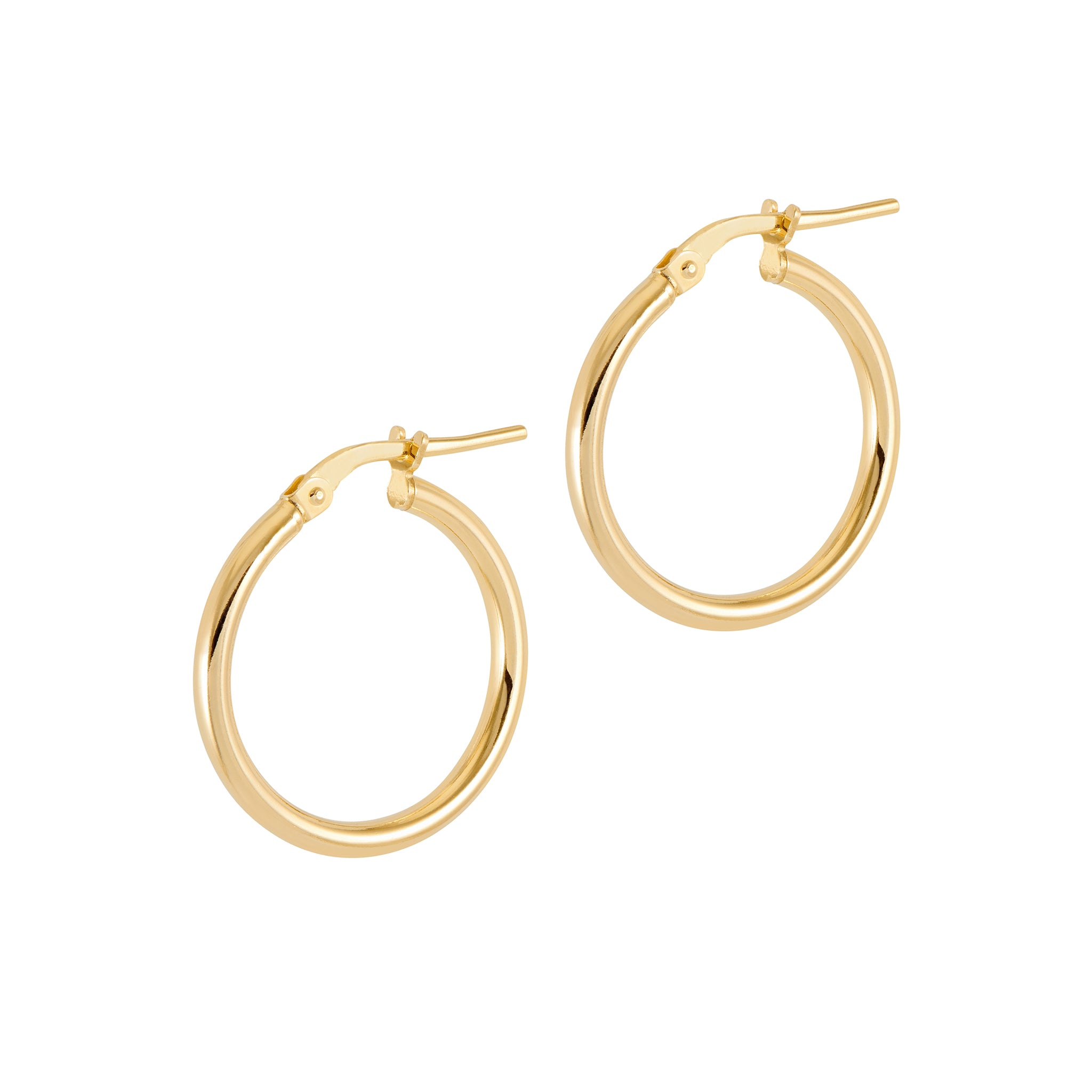

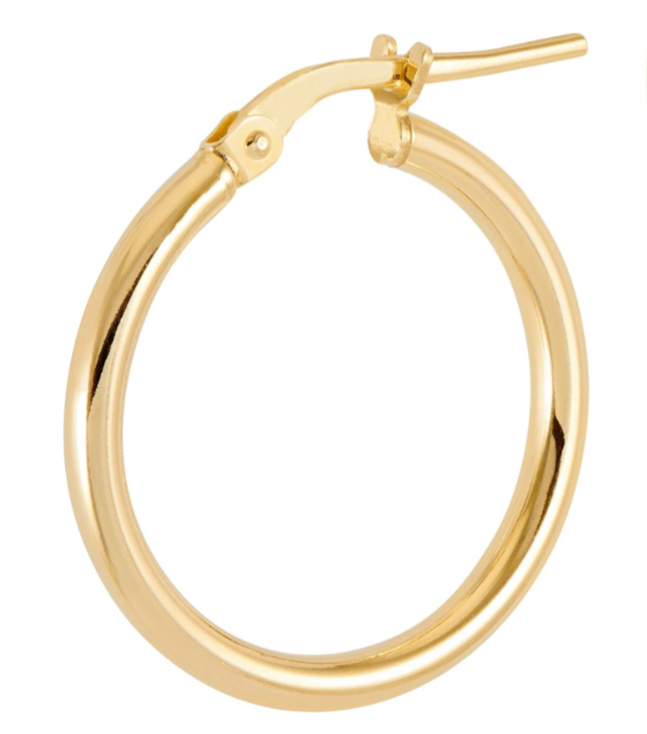
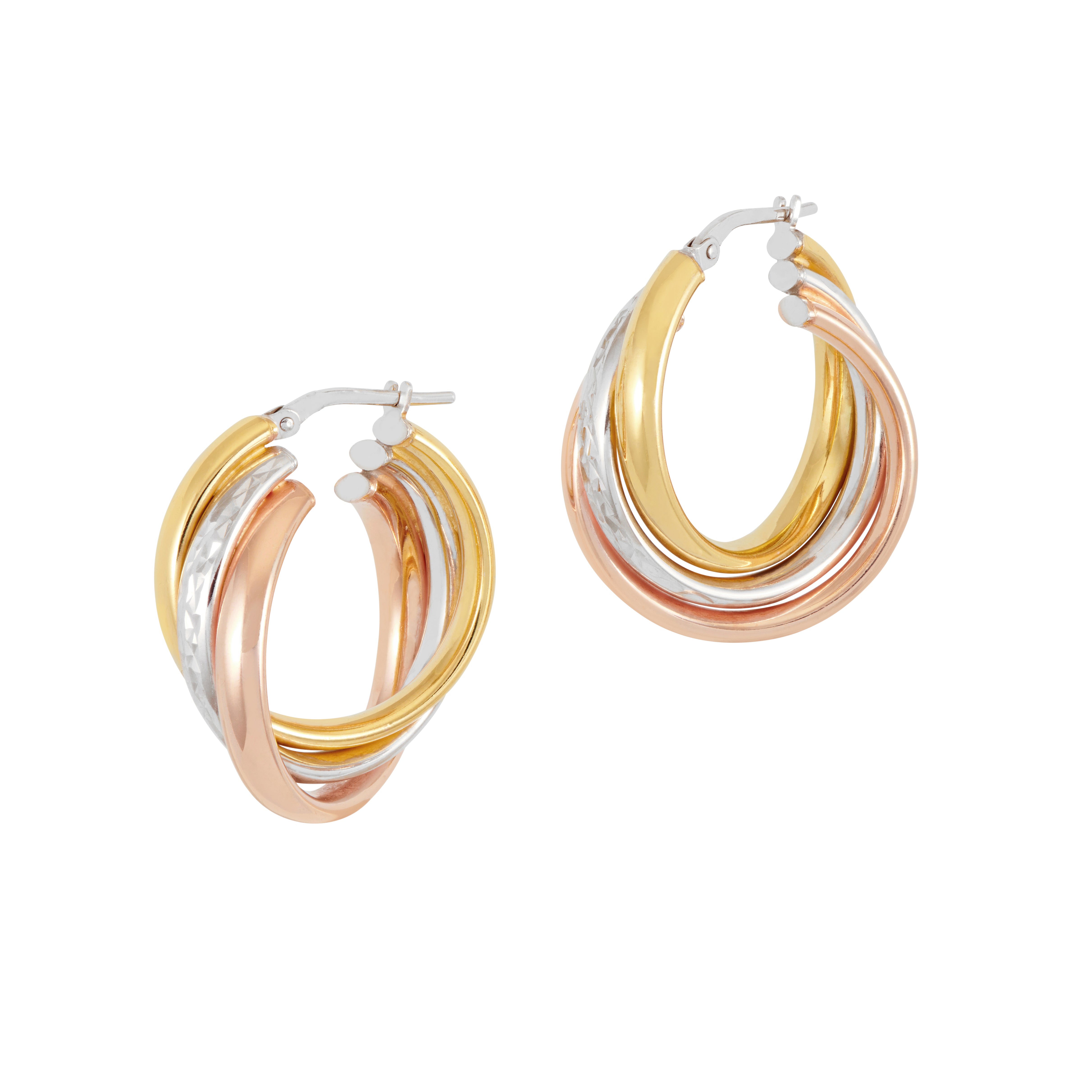
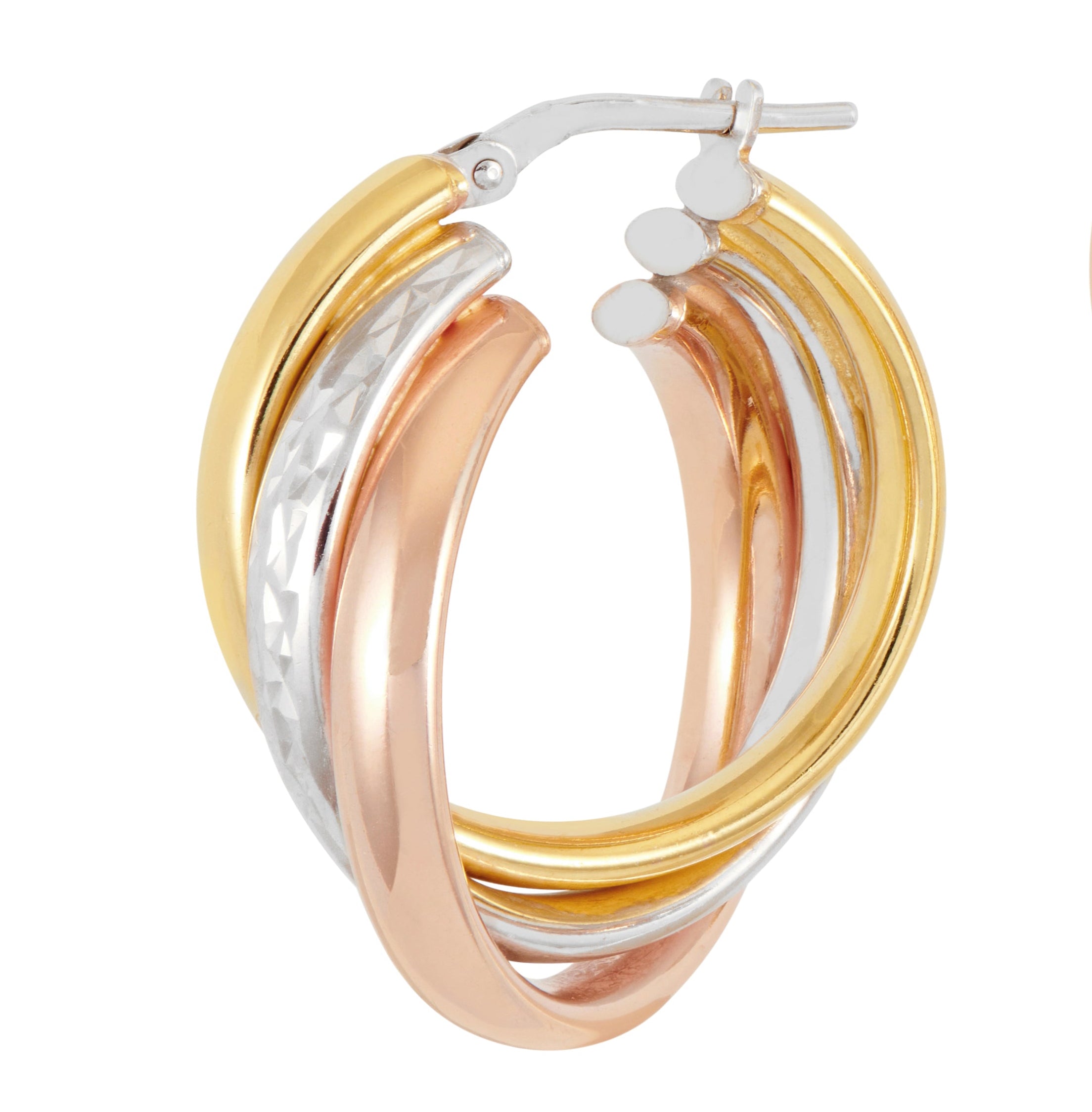
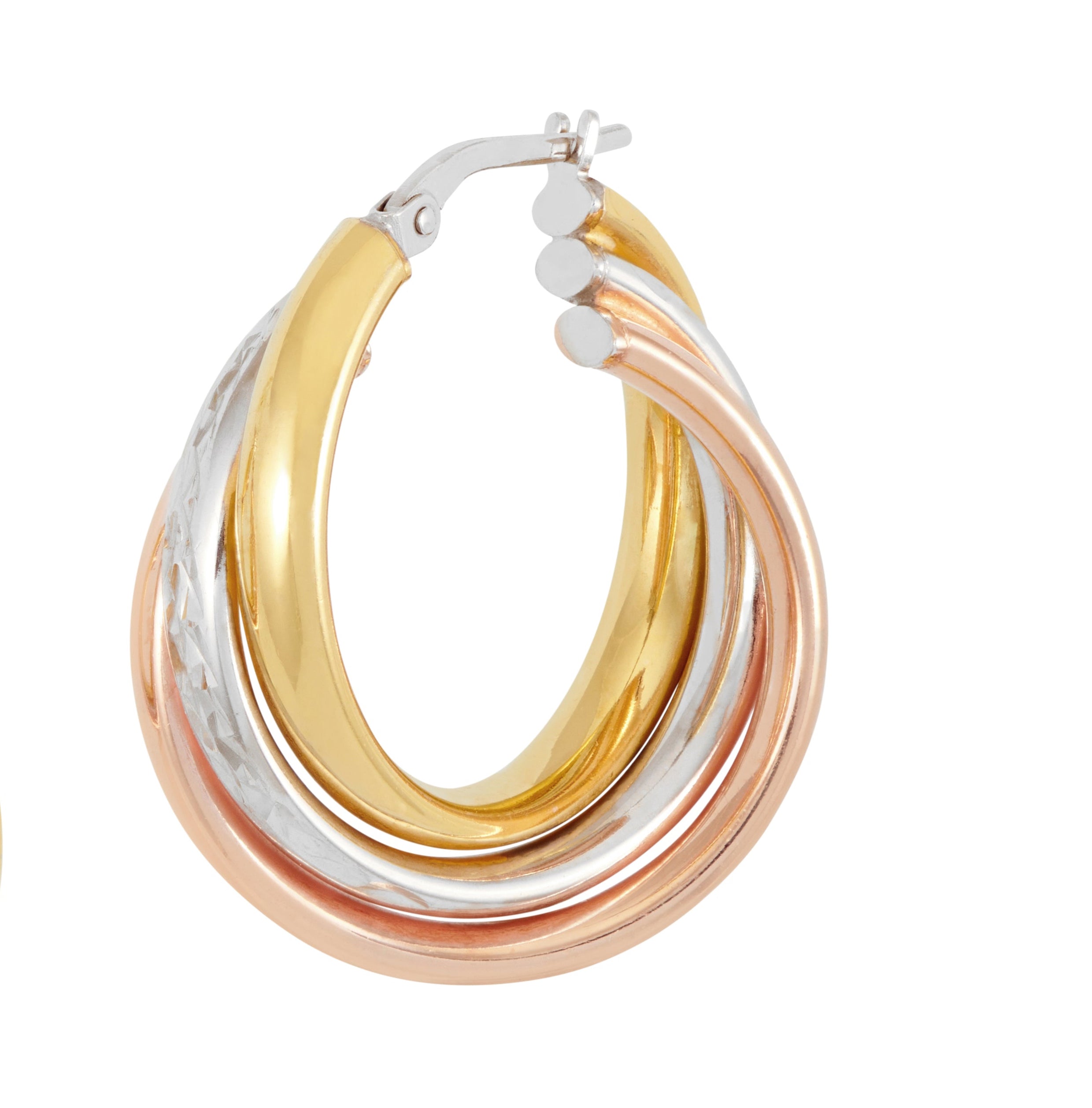
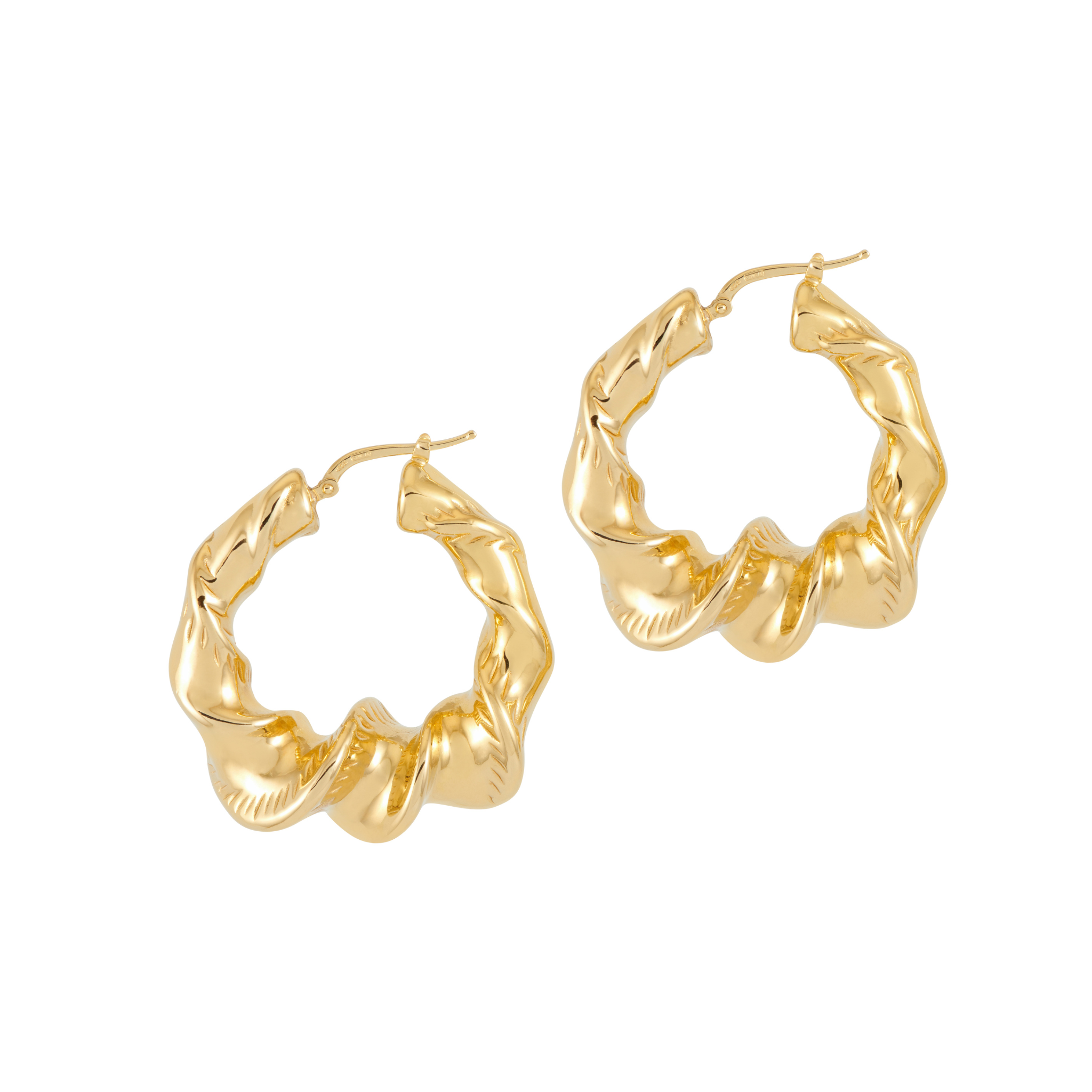
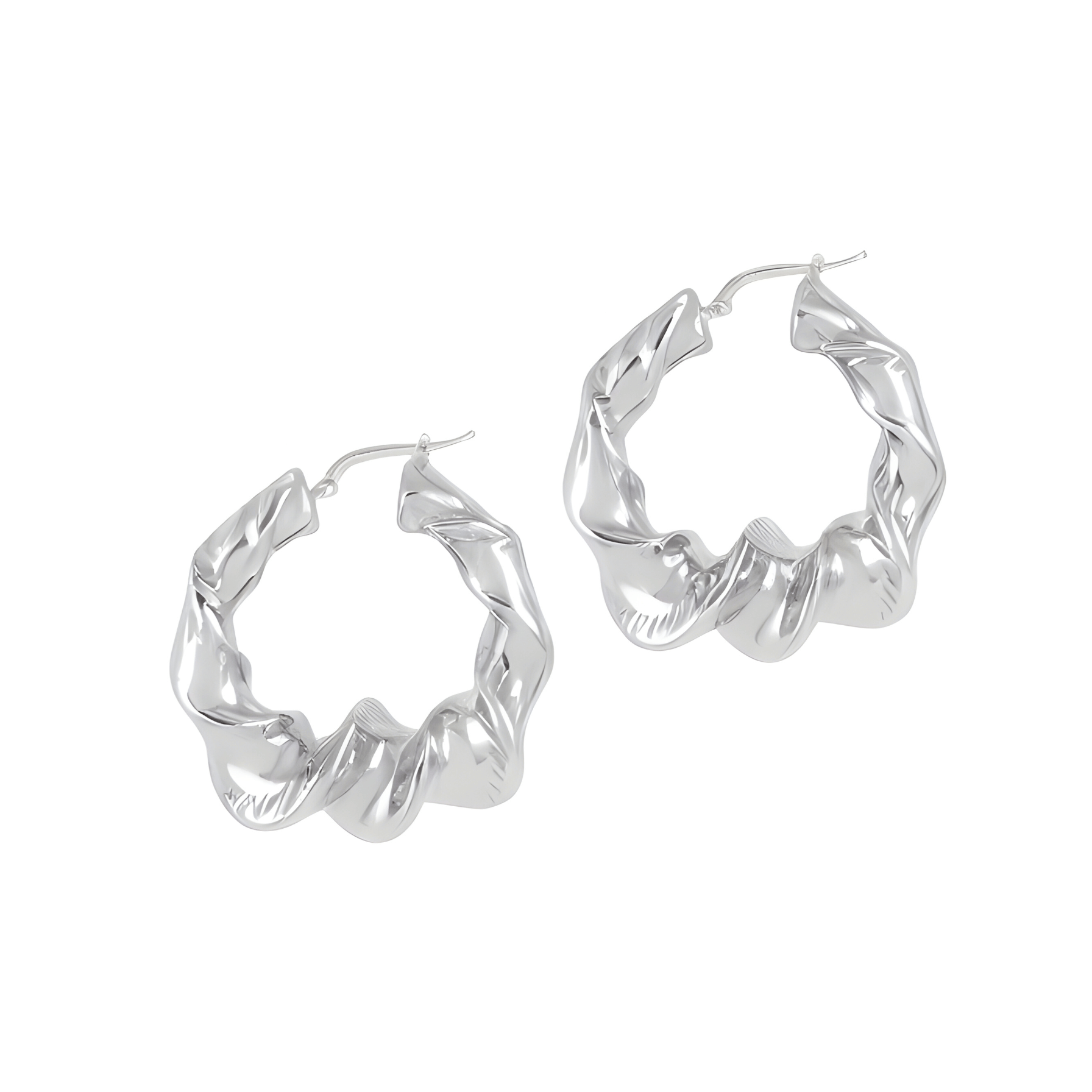
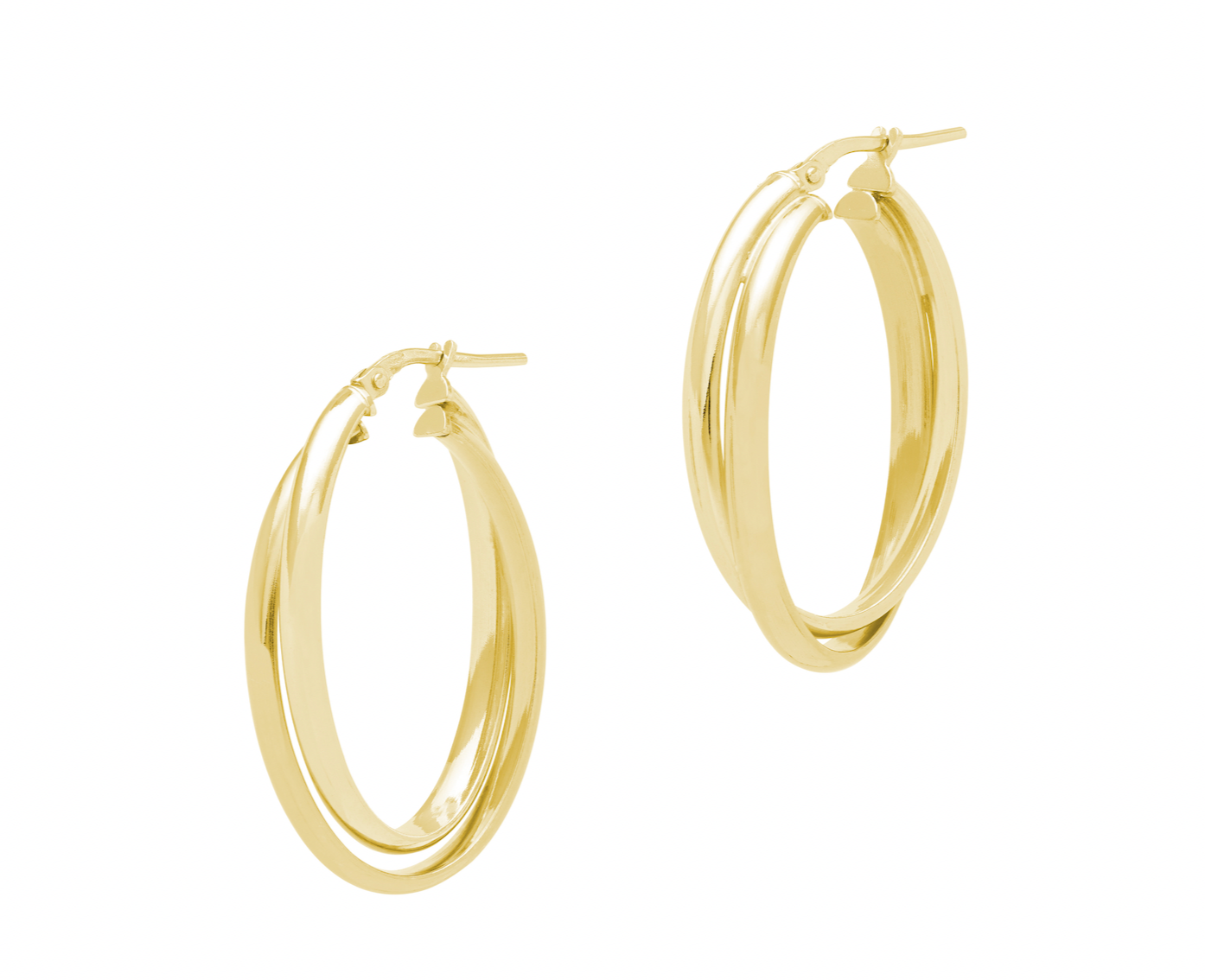

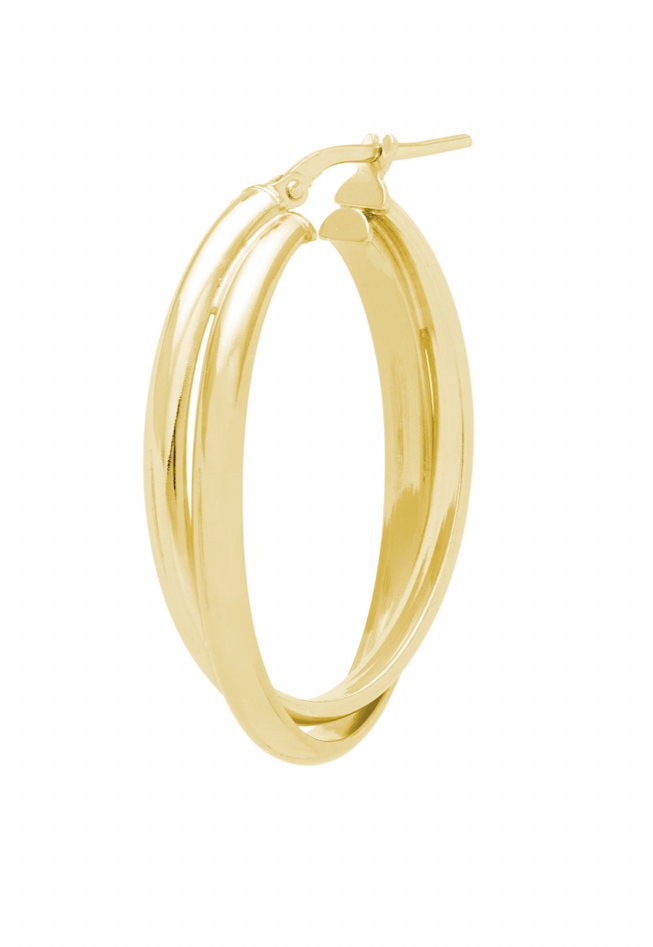
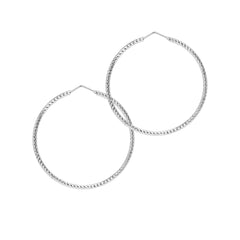

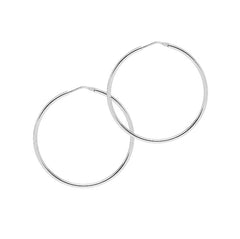
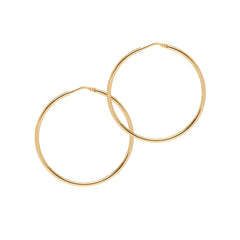

Leave a comment